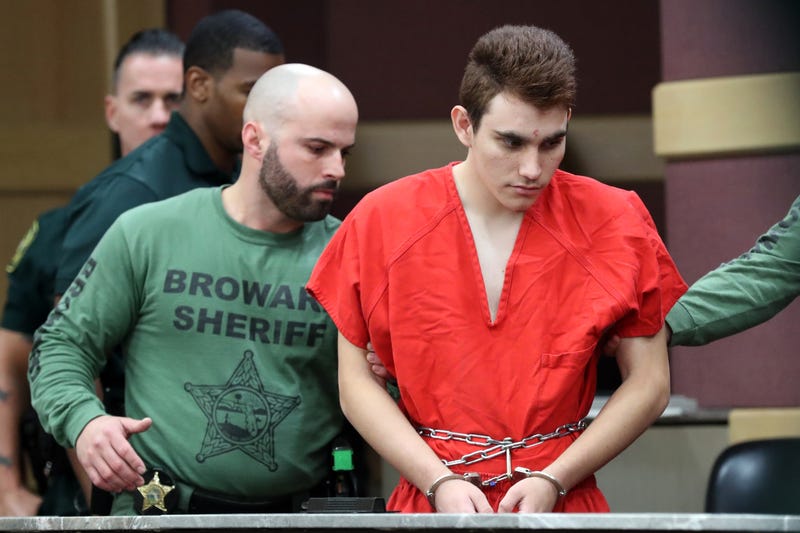Rhodesia’s Dead — but White Supremacists Have Given It New Life Online
Rhodesia’s Dead — but White Supremacists Have Given It New Life Online
By JOHN ISMAY APRIL 10, 2018
A photo illustration composed of screen shots from the Instagram accounts rhodesiaforever and the now-defunct Selous Armory showing Rhodesian-themed merchandise.
In the sepia-toned photo, two white soldiers patrol on foot over brush and rocky ground. Lean and bearded, they carry what appear to be Belgian rifles, and they wear an unusual uniform — cloth jungle hats, short shorts and tennis shoes — associated with a military unit that was disbanded nearly 40 years ago.
That unit was called the Selous Scouts, a special-forces regiment from the Rhodesian Army, which fought black insurgent armies in the Bush War of the 1960s and ’70s to maintain white-minority rule over territory that is now Zimbabwe.
Not long after Rhodesia ceased to exist, it became morally untenable to mourn its disappearance. As the rest of the world woke up to the injustices of Western colonialism and its system of white-minority governments, the Selous Scouts and their cause became taboo.
This screen shot from Instagram appears to show two Rhodesian Selous Scouts on patrol. The post is paired with a quote attributed to Lt. Col. Ronald Reid-Daly, who founded and then commanded the Selous Scouts during the Bush War of the 1960s and ’70s.
But late last year, the image of two Scouts began to circulate on Instagram, part of a social-media resurgence of Rhodesia as a source of inspiration. Photos of soldiers marching through grassland and rivers, special-forces units jumping out of helicopters and civilians posing in front of their homes with rifles collected hundreds, sometimes thousands, of likes on posts seeming to offer tribute to a hardened and forgotten cadre of Cold War-era bush fighters. The online movement also caught the attention of opportunistic apparel marketers who started selling Rhodesian-themed T-shirts, posters and patches, among other collectibles.
Nostalgia for Rhodesia has since grown into a subtle and profitable form of racist messaging, with its own line of terminology, hashtags and merchandise, peddled to military-history fans and firearms enthusiasts by a stew of far-right provocateurs.
In conversations and email exchanges with The New York Times, some prominent social-media figures and companies selling Rhodesia-themed merchandise denied trafficking in white-power messages, or said they had done so unwittingly. A few said their affinity for Rhodesia derived from the government’s supposed anticommunist stance.
But outside observers of this Rhodesia revival cite a far more disturbing inspiration for it: Dylann Roof, the American white supremacist who
killednine black parishioners in a Charleston, S.C. church in June 2015. Roof, who was sentenced to death last year, had penned an online manifesto, which appeared on a website called The Last Rhodesian, with photographs of himself wearing a jacket with a patch of the green-and-white Rhodesian flag.
Dylann Roof, who killed nine black parishioners in a Charleston, S.C., church in 2015, wearing a jacket with the green-and-white flag of Rhodesia in a photo posted to a website called The Last Rhodesian.
Demand for Rhodesian-themed apparel has since increased. Today one retailer, the Commissar Clothing Company, offers “Make Zimbabwe Rhodesia Again” hoodies and T-shirts and others that read “Be a Man Among Men,” a Rhodesian Army recruiting slogan now used by hate groups. The online store was taken down in March, but its merchandise is still available on the company’s eBay storefront.
Another retailer of Rhodesia-themed goods, the Western Outlands Supply Company, which is
listed by the Southern Poverty Law Center as a “white nationalist hate group,” was formerly known as Right Wing Death Squad and sold similar fare, in addition to apparel featuring Crusader crosses and medieval symbols like those seen at the Charlottesville “Unite the Right” rally last year.
A screen shot from the Western Outlands Supply Company’s Instagram account shows a phone case bearing the slogan and insignia of the Selous Scouts. The case was, until recently, available for purchase on the Western Outlands website.
Commissar goes further, offering shirts that say “Slot Floppies,” a phrase that is sometimes used as a hashtag on Instagram and other social media platforms to promote Rhodesian-themed posts and messaging. “Floppy,” in 1970s Rhodesia, was the equivalent of an unprintable racist epithet in the United States, while “slot” was Rhodesian military slang for “shoot.”
A screen shot from the Commissar Clothing Company Facebook page of T-shirts once available for purchase on the company’s website. The website has been taken down, but its products are still available on the company’s eBay storefront.
When The Times asked Instagram whether #MakeZimbabweRhodesiaAgain and other hashtags violated community standards, the social-media company issued this statement: “We have blocked these hashtags for violating our hate-speech policies,” it said, “and they will no longer be searchable on Instagram.”
If such symbols and slogans, for a North American audience, lack the instant shock effect of a Confederate or Nazi flag, that is part of the point. Commissar Clothing’s website, now shuttered, explained its products’ wink-and-nod appeal: “We think you should be able to tell the world about you without saying a word,” it read. “The great thing about most of our designs is that they are essentially inside jokes and references that the general public will not understand.”
When reached by email, Commissar Clothing’s owner, Alexander Smyth, said, “I do not support or condone racism of any sort.”
The online apparel company FireForce Ventures, whose website is registered to the Canadian Army reservist Henry Lung, offers reproduction Rhodesian flags, recruiting posters and various patches of the Rhodesian security forces. Lung, who is of Chinese descent, told The Times, “I see the veteran community, the Rhodesian community, as one to be honored,” but insisted that he was not a white supremacist, and that he was “just trying to make a little bit of extra cash.”
A screen shot from the FireForce Ventures Instagram account showing a reproduction of a Rhodesian Army recruiting poster available for purchase on the company’s website.
Heidi Beirich, head of the Southern Poverty Law Center’s Intelligence Project, said the uptick of pro-Rhodesian messaging is a purposeful amplification of the ideology and practice of “racist colonial regimes” — and possibly even an exhortation to war.
“All the talk right now among people in the alt-right and the broader white supremacist movement is about the need for a white ethno-state,” she said. “And when you praise Rhodesia, in this context, what you’re praising is violence to that end.”
“There were no defenses for apartheid regimes and colonialism 20 years ago,” Beirich added. “And now all of a sudden we’re seeing this stuff pop up.”
Southern Rhodesia was established in 1923 as a British colony named for Cecil Rhodes, who made his fortune in consolidating diamond mines. By the 1960s, as much of Africa rapidly decolonized around it, the colonial government faced pressure from London to hold free elections and accede to majority rule.
The colonial government refused. In 1965 it renamed itself Rhodesia and broke from the United Kingdom with the express purpose of maintaining white rule. The new government was led by Ian Smith, who declared that “the white man is master of Rhodesia. He has built it, and he intends to keep it.”
Smith’s government soon found itself at war with a black insurgency, fighting for representative government and self-rule. Many of the fighters received weapons from China or the Soviet Union. Rhodesia’s government labeled them “communists” and “terrorists.”
“It’s a complicated story,” said Gerald Horne, author of “From the Barrel of a Gun” and a professor of history and African-American studies at the University of Houston. “But of course the apartheid side knew what sold in Washington, so they portrayed it as a battle against communism because it got pulses racing in the United States.”
The battle for perception is playing out again now on social media, which pro-Rhodesia accounts or commenters are using to rewrite Rhodesian history in gentle tones. On Jan. 27, the Instagram page @historicalwarfareinc posted the photo below, claiming it depicted an army officer deciding the fate of a prisoner.
An Instagram screen shot featuring a photo taken in September 1977 by J. Ross Baughman. The photo, which won a Pulitzer Prize in 1978, shows a Rhodesian soldier holding a bat after he used it to beat Moffat Ncube, a local teacher and political leader.
The photograph is well known. It was taken in September 1977 by an Associated Press photographer, J. Ross Baughman, who was awarded a Pulitzer Prize for capturing the brutality of the Rhodesian Army.
That Instagram caption provides far less context than the version submitted for the Pulitzer, which
read: “Lt. Graham Baillie raps a small wooden bat against his leg after using it to beat Moffat Ncube, a local teacher, political leader and now a bound, unconscious prisoner slumped against the wall of schoolhouse, 20 September 1977.”
It added: “Ncube reportedly later died after three days of brutal, nonstop torture.”
As of April 6, the photo with the more anodyne caption had nearly 1,850 likes.
Some pro-Rhodesia voices on social media are not so subtle.
Last December Joseph Smith, a 22-year-old resident of Rexburg, Idaho, who told The Times he had not heard of Rhodesia until 18 months ago, posted a YouTube video that he said offered “a quick rundown” of Rhodesian history. The video has received more than 180,000 views.
Comments on it included calls for Rhodesia to return, claims that the West betrayed Rhodesia and outright hostility to the idea of black-majority rule. With more than 1,700 comments in just the last three months, the discussion quickly devolved into a stream of racial and ethnic slurs against African-Americans and Jews, calling for them to be shoved into gas chambers and ovens.
In an email to The Times, Smith wrote that he felt persecuted and that he has found Rhodesian themes compelling. “I’m sure you’re aware these days being a conservative heterosexual white male is rather unpopular in the eyes of many,” and that “this is the demographic that caused Rhodesia to thrive as well as it did for as long as it did.”
He insisted, however, that his attraction to Rhodesian nostalgia was not racist. “I do not think that it’s a race issue though,” he wrote. “Partly I just feel like white people like having a team to root for these days.”
An examination of retailers and social-media accounts showed a varied understanding and mixed approaches to addressing the meanings in the pro-Rhodesia messaging.
The Selous Armory, a Massachusetts apparel company run by Sean Lucht, a Boston firefighter and Marine veteran, sold a red-and-white “Make Zimbabwe Rhodesia Again” patch online until recently. The site also sold T-shirts with sayings like “Rhodesians Never Die” and “Apply Violence” with the Rhodesian Foreign Legion logo, in addition to “Be a Man Among Men” posters. When The Times reached out to Lucht for comment about the business in March, all the merchandise was stripped from the website and an announcement was published on its home page saying, “The Selous Armory was always a place for military history/humor and never a place for hate.” The announcement added that the Selous Armory had ceased all operations. Lucht did not respond to numerous requests for comment.
A screen shot from the Selous Armory Instagram account, now defunct, showing Rhodesian-themed posters, stickers and patches once available for purchase on the company website.
A screen shot from the former Instagram account of Selous Armory displaying a patch that echoes President Trump’s campaign slogan and that was once available for purchase on the company’s website.























